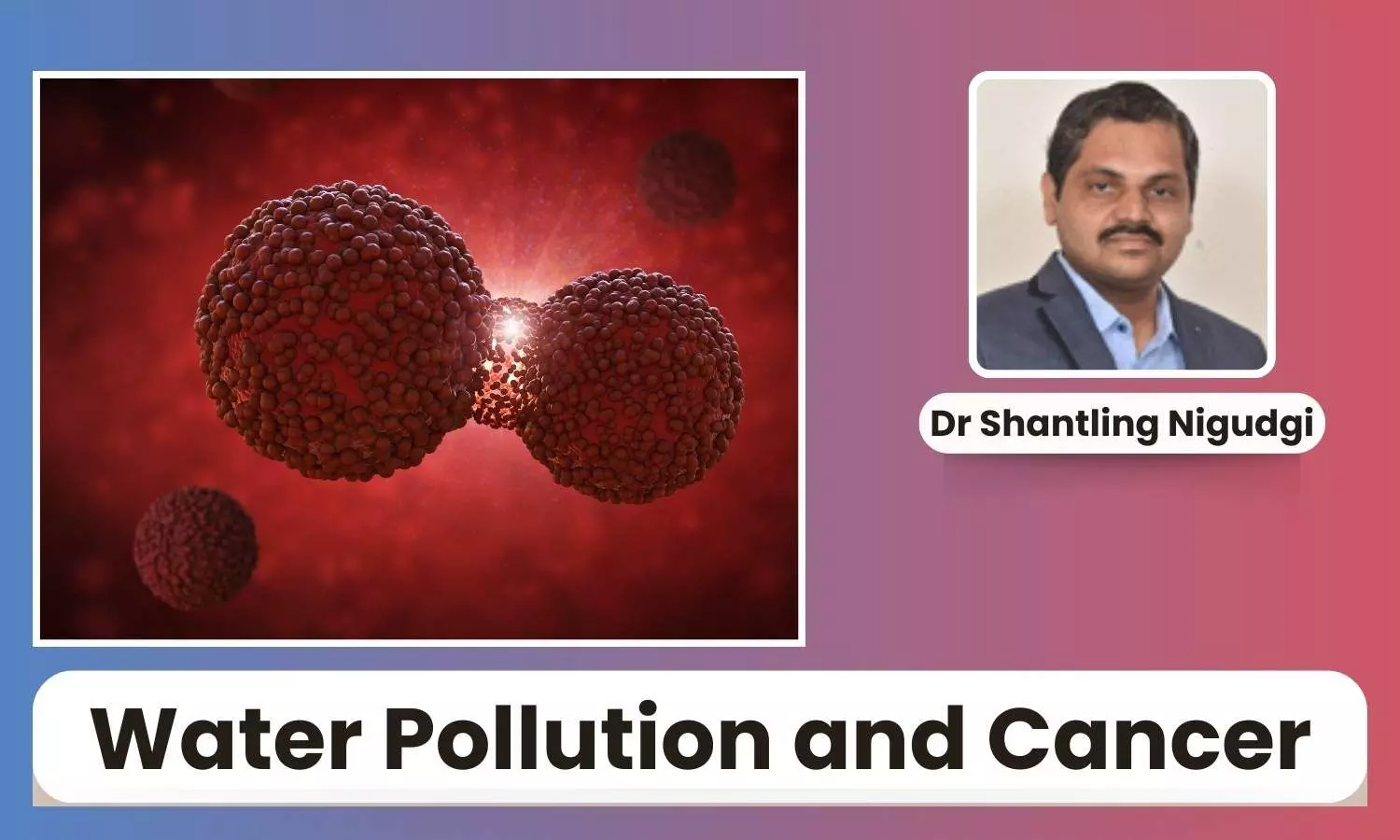Water Pollution and Cancer: Understanding Risks to Health - Dr Shantling Nigudgi

The demands of contemporary life often lead us to neglect the crucial connection between our lifestyle decisions and environmental well-being. We focus on healthy eating, regular exercise, and mental well-being, but tend to neglect the impact of our surroundings on our overall health.
One crucial aspect of environmental health is access to clean drinking water. Unfortunately, water pollution has become a pervasive issue worldwide, posing significant health risks, including increased cancer susceptibility.
Water pollution affects billions of people globally, with contaminants ranging from industrial chemicals and pesticides to bacteria and viruses.
The sources of pollution are diverse: agricultural run-off, industrial waste, sewage, and even natural disasters like floods.
These contaminants can enter water sources through various pathways, including groundwater, surface water, and even atmospheric deposition.
Cancer - Causing Contaminants
Exposure to contaminated water can lead to various types of cancer, including bladder, colorectal, kidney, leukaemia, lymphoma, and skin cancer.
Specifically, bladder cancer is linked to arsenic, chlorination byproducts, and pesticides, while colorectal cancer is associated with volatile organic compounds (VOCs) and pesticides.
Kidney cancer is connected to pesticides and chlorination byproducts, and leukaemia and lymphoma are linked to VOCs and radionuclides. Additionally, skin cancer is associated with arsenic exposure, highlighting the critical need to address water pollution to prevent these life-threatening diseases.
Cancer Risks Associated with Water Pollution
Exposure to contaminated water can lead to various types of cancer.
- Bladder cancer: associated with exposure to arsenic, chlorination byproducts, and pesticides.
- Colorectal cancer: connected to volatile organic compounds (VOCs) and pesticides.
- Kidney cancer: linked to pesticides and chlorination byproducts.
- Leukaemia and lymphoma: associated with VOCs and radionuclides.
- Skin cancer: connected to arsenic exposure.
Each of these cancers has specific environmental factors that increase risk, underscoring the importance of limiting exposure to these contaminants.
Vulnerable Populations
Certain groups are disproportionately susceptible to the cancer risks posed by water pollution. Children are particularly vulnerable as their developing organs and tissues are more sensitive to contaminants.
Pregnant women are also at risk, as exposure to carcinogens can disrupt fetal development.
Additionally, low-income communities and indigenous populations are often disproportionately affected, lacking access to clean water sources and adequate treatment infrastructure, forcing them to rely on contaminated water sources.
These populations require special consideration and protection to mitigate the health risks associated with water pollution.
Mitigating Cancer Risks
To minimize the risks associated with carcinogenic water pollutants, individuals and communities can take proactive steps. Using effective water filters can remove contaminants like lead, arsenic, and chlorine byproducts from drinking water.
Choosing safe water sources, such as opting for bottled or filtered water when tap water is contaminated, is also crucial.
Furthermore, supporting improved water infrastructure by advocating for better treatment and distribution systems can help ensure access to clean water.
Finally, reducing chemical use by minimizing pesticide and herbicide application in agriculture and gardening can help prevent water pollution at its source, protecting both human health and the environment.
The link between water pollution and cancer risk is undeniable. As we prioritize our lifestyle choices, we must also acknowledge the critical role of environmental health in preventing cancer.
By understanding the threats posed by water pollution and taking proactive steps to mitigate them, we can protect our health and the health of future generations. It's time to make clean water a priority – our lives depend on it.


